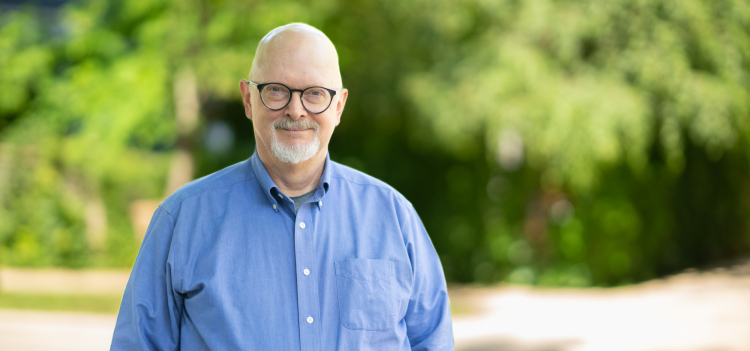Retirement honor: Doug Jorenby, PhD

The Department of Medicine is proud to honor Doug Jorenby, PhD, professor, General Internal Medicine, and director of clinical services, UW Center for Tobacco Research and Intervention (UW-CTRI), who will retire in July.
Dr. Jorenby received his PhD in clinical psychology and completed a postdoctoral fellowship in preventive oncology at UW–Madison. He has served in his position at UW–CTRI since the institute’s inception in 1992.
Dr. Jorenby has served as principal investigator (PI) or co-PI on a number of studies involving the efficacy of various behavioral and pharmacologic treatments for tobacco dependence. His current research involves optimization of new and existing treatments for individuals through predictive modeling. He has also published research on treatment for women.
"Doug has been a tremendous colleague and a great contributor to CTRI—in terms of both its research and clinical missions," says Timothy Baker, PhD, emeritus professor and Glaxo Wellcome Chair for the Study of Tobacco Dependence, General Internal Medicine, and director of research at UW–CTRI. "His work has consistently been highly thoughtful, accurate, insightful and important. We will miss his many contributions and his wonderful sense of humor."
Learn more about Dr. Jorenby in the Q&A below.
During your time in the Department of Medicine, what would you consider your most significant accomplishments?
Without a doubt, it would be the work I have been part of at the Center for Tobacco Research and Intervention helping people to get tobacco out of their lives. It has run the gamut from working 1-on-1 with patients in the Smoking Cessation and Prevention Clinic as they stop smoking, to large clinical trials that helped evaluate new smoking cessation treatments, to public health science that helped establish evidence-based clinical practice guidelines, to helping support CTRI’s unique Outreach program that translates those guidelines into real world assistance for people all across Wisconsin. Having seen the sustained drop in US smoking rates since the 1980s, and knowing the positive impact that has on both life expectancy and quality of life for people who used tobacco – some of whom I got to meet face-to-face and others we may never meet, but still have benefitted from the work CTRI has done collectively.
What have been the most personally gratifying aspects of your work?
The people. Not just the people I mentioned earlier who were delighted to have quit smoking, but also the memorable colleagues who worked/are still working at CTRI. You couldn’t ask for a better group of people to spend a career with. We’ve also been fortunate to have undergraduate students, medical students, graduate students, residents, and fellows who have worked with us, many of whom have used that experience to go on and do brilliant work in their own right. Every time I hear from one of them and what they are doing with their lives, it reminds me of the ripple effects in the things we do. I’d also include my wonderful colleagues in the General Internal Medicine Clinic. As we migrated from UWHC to University Station to 1102 S Park St, what remained constant was a group of dedicated clinicians who go out of their way to provide quality care. Being a dedicated Behavioral Health provider there long before “integrated care” was a concept has connected me with some amazing people over the decades.
Any particularly fond memories?
One that I keep coming back to is from the earliest days of the Smoking Cessation and Prevention Clinic. Dr. Michael Fiore and I worked with a gentleman who decided to quit smoking after he had been diagnosed with advanced cancer. Although we didn’t have as many treatment tools to work with back then, he was able to quit smoking and continued with his cancer treatment. A few months later, he reached out to us again. He had returned to a living situation where several other people continued to smoke, and after resisting for many weeks, he had relapsed to smoking. He wanted to come back to the clinic to quit again. Dr. Fiore had reviewed his chart before we met with him, and when the three of us sat down together, he said, “I want to be honest with you. It doesn’t look like stopping smoking again will change what is happening with the cancer.” The gentleman looked at both of us and replied, “I knew that when I called. I don’t expect it to. But quitting smoking is something that I want to do before I go.” He quit again, and he stayed smokefree for the rest of the time he had. That kind of courage is something you do not forget.
What are you looking forward to in retirement?
I don’t have any major plans at this point.
Banner: Doug Jorenby, PhD. Credit: Clint Thayer/Department of Medicine.